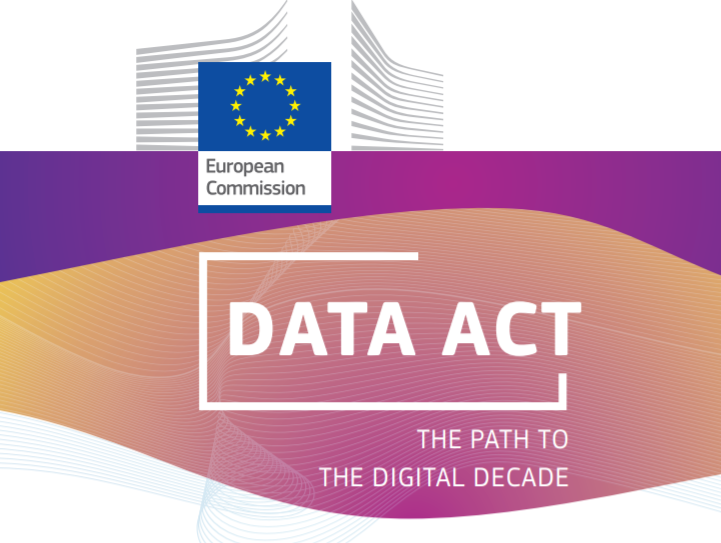594 rezultāti atrasti
Skip results of view Ziņas

We are delighted to share with you the BDTI Essentials Course. It is designed for individuals aiming to strengthen the development of a data-informed public sector. Whether you are a public servant, a professional in the field, a student, or simply keen on public sector innovation, this course is your gateway to becoming skilled at data analysis. This e-learning series comprises five sessions, scheduled for the following dates from 11:00 – 12:15 am CEST. Session 1: Data Access and Exploration (02 February 2024) Session 2: Data Cleaning and Transformation (16 February 2024) Session 3: Data

Register now for the final session of our AI webinar series: A comprehensive look at the EU's AI Act
As our insightful 2024 webinar series on artificial intelligence (AI) draws to a close, we invite you to join the final session, titled "Deep dive into artificial intelligence and data ecosystems: the regulatory approach of the European Union," which is set to unfold the European Union's regulatory stance on artificial intelligence (AI). It will be held on the 2 February from 10:00 – 11:30 CET and follow a similar structure to our first two AI panel discussions. This last session will navigate the current complex landscape where the rapid development of AI technologies is overtaking

24 January is observed globally as the International Day of Education, a day dedicated to acknowledging and celebrating the role of education in advancing development, peace, and equality. Proclaimed by the United Nations General Assembly in December 2018, this day urges us to reflect on education's transformative power and our collective duty to promote and enhance learning opportunities for all. The theme for this sixth International Day of Education is “Learning for Lasting Peace.” Disparity in education quality and access is a significant global concern. UNESCO’s statistical data

Across Europe, national and local open data platforms have emerged as tools for innovation, transparency, and public welfare. These portals, equipped with a diverse range of public and private sector datasets, are resources driving societal improvements. From enhancing public services to fostering economic growth, the potential applications of these platforms are vast and varied, making them valuable assets in our increasingly data-driven world. In this new series about open data platforms, each news piece will focus on a specific example. Starting with the Netherlands, which stands out with

Join us on Friday 26 January from 10:00 to 11:30 CET for the second session in our three-part webinar series, titled "Deep-dive into artificial intelligence and data ecosystems: fundamental rights, ethics and data protection." This session is set to explore the increasingly prominent role of artificial intelligence (AI) in our private and professional spheres, and the critical issues of ethics and fundamental rights that arise with its growing influence. AI's presence in our daily lives is more pervasive than we often realise – from drafting email responses to generating comprehensive reports

The European Green Deal, a policy initiative by the European Union (EU), sets a path towards a sustainable and climate-neutral future by 2050. However, the latest European Environment Agency (EEA) report on the EU’s 8th Environment Action Programme (EAP) presents a nuanced view of this journey, highlighting both the progress made and challenges to overcome. EEA’s recent report is pivotal as it evaluates progress against the crucial objectives of the 8th EAP, a key element of the Green Deal. Alarmingly, the findings indicate that the EU might miss several of its 2030 environmental targets. The

In 2024, we celebrate the 20th anniversary of the Erasmus Mundus Joint Master (EMJM) programme, an initiative by the European Union that focuses on high-level, integrated master's programmes offered collaboratively by various universities in Europe. The EMJM embodies a commitment to unite diverse educational approaches, fostering a shared learning experience that transcends geographical boundaries. Over these two decades, Erasmus Mundus has established itself as a cornerstone of international academic collaboration, enriching the educational journey of students across continents. The programme

We are excited to unveil the findings from our User Survey Assessment—a comprehensive exploration into our user community. The data.europa.eu survey was circulated among our valued users last September and delved into various facets, capturing insights on demographics, preferred content, and reasons for visiting our portal. The fact that our user base mostly falls between the ages of 35 and 54 did not come as a surprise. However, what was unexpected, is that a majority of our users come from the private sector. This further validates how open data makes an impact on society not just through

Today marks a milestone in the European Union's digital landscape as the EU Data Act officially enters into force. The Data Act, part of the broader European strategy for data, is a response to the exponential growth in data volumes fuelled by the Internet of Things (IoT) revolution. It addresses the need to tap into the vast reservoirs of unused industrial data, creating opportunities for innovation and growth. At its heart, the Data Act is designed to democratise access to and utilisation of data. It aims to level the playing field by enabling users of connected devices and related services

Ge t ready for an exciting start in 2024 as the data.europa academy gears up for a n interesting line-up of webinars and panel discussions ! Th e first panel discussion of this series is set to unravel the rapidly evolving landscape of artificial intelligence (AI) and its profound impact on data generation , data governance and data policy within open data ecosystems. During these engaging sessions, we will examine the legal and policy challenges surrounding AI. The first panel discussion will focus on the intricate web of data ownership, date use, and the legal dimensions . It will be held on
